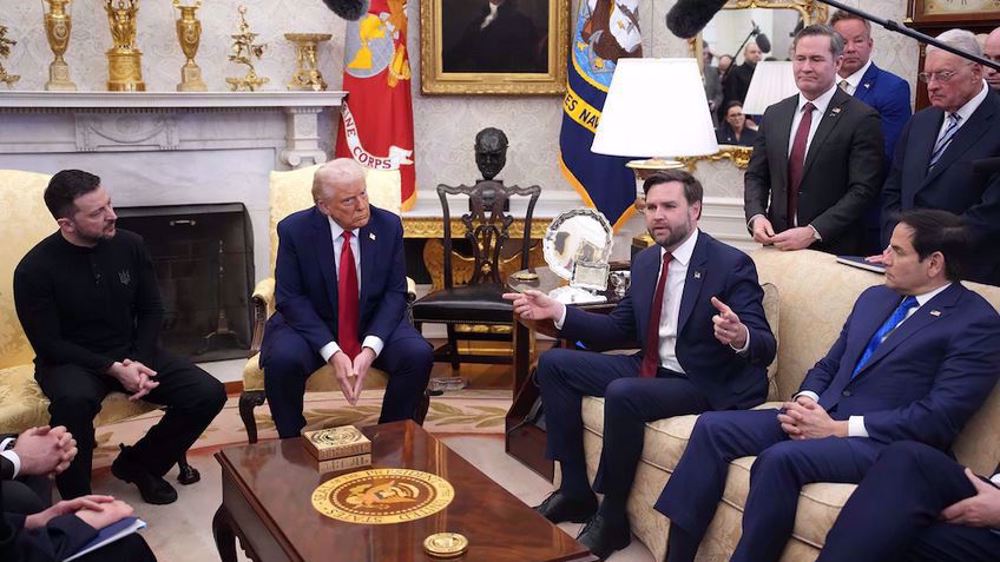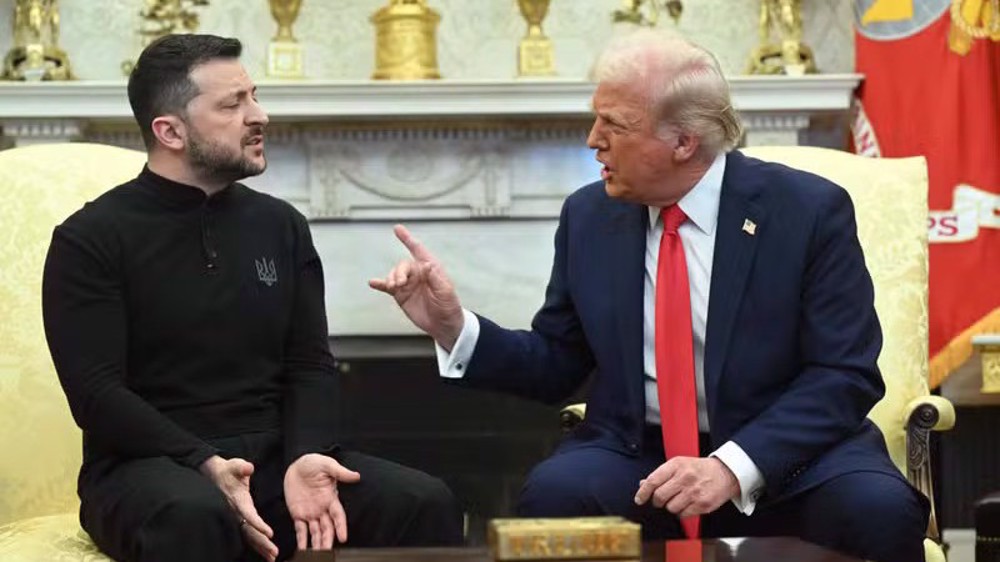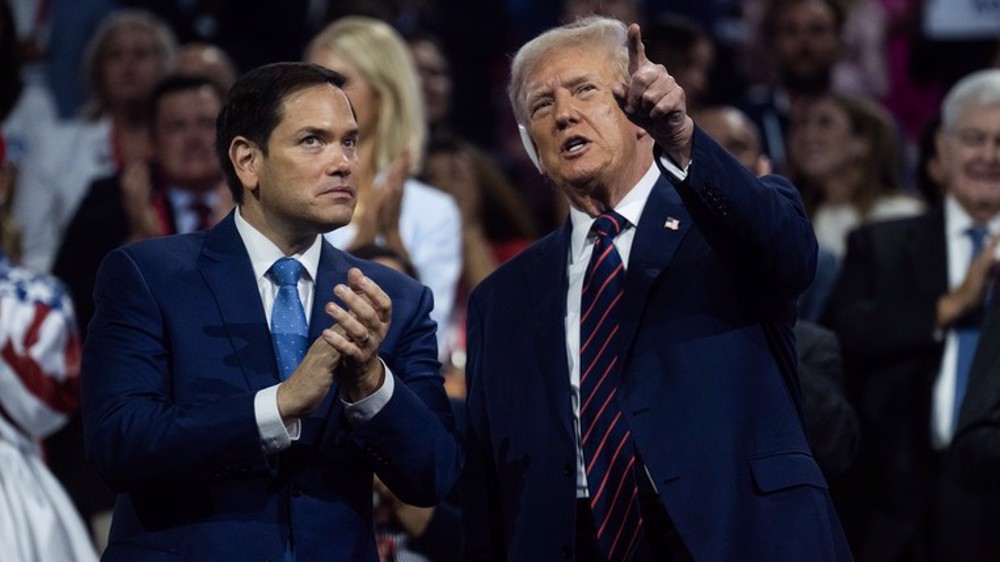US lawmakers agree to impose new sanctions on Russia, Iran, N Korea
US Republicans and Democrats have agreed to impose new sanctions against Russia and Iran as well as North Korea, in a revised bill that would create limits for President Donald Trump to relax sanctions on Moscow.
The measure will "hold them accountable for their dangerous actions," House Majority Leader Kevin McCarthy said in a statement on Saturday.
President Trump could veto the bill if it reaches his desk, but there is a chance that Congress could override his veto with a two-thirds vote.

The Countering Iran's Destabilizing Activities Act, passed by the Senate in June, was held up in the House of Representatives after Republicans proposed that North Korea sanctions be included in the bill.
The House will vote Tuesday on a package of sanctions covering Iran, North Korea and Russia. The legislation would make it much harder for President Trump to try to lift sanctions against Moscow.
Under the proposed bill, Trump is required to submit to Congress a report on his proposed actions that would "significantly alter" US foreign policy towards Russia.
Trump’s proposals include easing sanctions or returning diplomatic properties in Maryland and New York that former President Barack Obama ordered vacated in December.
Congress should hold a hearing within at least 30 days and then vote to either uphold or reject Trump’s proposed changes.
House Democratic leader Nancy Pelosi (pictured below) said Russia's "outrageous and unacceptable" behavior in the 2016 US election and in Europe "demand that we have strong statutory sanctions enacted as soon as possible."

Pelosi was referring to alleged intervention by Russia in last year's election as well as rejoining of Crimea to Russia which the US sees as annexation of Crimea. Russia has vehemently rejected both accusations.
Trump and Russian President Vladimir Putin met at the Group of 20 summit in Hamburg earlier this month.The US president said it was an "honor" to meet Putin, but he has been criticized for seeking to reset relations between Washington and Moscow.
Senate Democratic leader Chuck Schumer said in a statement that he expects "the House and Senate will act on this legislation promptly, on a broad bipartisan basis."

Also, Senator Ben Cardin, the top Democrat on the Senate Foreign Relations Committee, said the agreement was reached after "intense negotiations."
"A nearly united Congress is poised to send President Putin a clear message on behalf of the American people and our allies, and we need President Trump to help us deliver that message," he said in a statement.
McCarthy and Ed Royce, chair of the House Foreign Affairs Committee, said in a statement the revised bill helps "bolster the energy security of our European allies by maintaining their access to key energy resources outside of Russia."
However, the European Union has warned the US against imposing new sanctions on Russia, urging Washington to coordinate with its Group of 7 partners.
The European Commission, the EU's executive body, warned of possibly "indiscriminate" and "unintended consequences," particularly on the EU's efforts to diversify energy sources away from Russia.

Zelensky should apologize for ‘fiasco’ with Trump: US state secretary

Trump, Vance rebuke Zelensky in heated Oval Office confrontation

Trump seeks sweeping cuts to State Department: Report
Zelensky should apologize for ‘fiasco’ with Trump: US state secretary
Houthi: Yemen ready to attack Israel if Gaza truce breaks down
VIDEO | Lost classrooms, lost childhoods: Jenin’s children struggle for education
VIDEO | Palestinians ramain steadfast despite Israel’s onslaught
VIDEO | Press TV's news headlines
Iran ready to strengthen ties with UAE based on ‘mutual interests’: Deputy FM
VIDEO | A slap in the face of imperialism
Iran remains steadfast in its ‘principled positions,’ says Foreign Ministry










 This makes it easy to access the Press TV website
This makes it easy to access the Press TV website